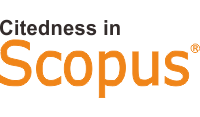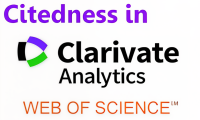Waqf Funds for Higher Education in Malaysia and Bahrain: Drawing Lessons from the Experience
DOI:
https://doi.org/10.46870/milkiyah.v2i2.659Keywords:
Waqf, Higher Education, Malaysia, BahrainAbstract
Changes have been made to the concept of state-funded education that has been prevalent worldwide for millennia. Many unfavourable budget cuts, particularly during the economic downturn, created a challenging fiscal position for Higher Education Institutions (HEIs). As state financing declines, public institutions are under pressure to find new and creative methods to make ends meet. Public HEIs in Malaysia are obligated to gain their revenue due to the country's restrictive budget policies. Establishing waqf or an endowment fund at the higher education/university is viewed as an innovative step toward financial sustainability. This research compares and contrasts the waqf funding for higher education in Malaysia and the Kingdom of Bahrain and draws lessons for the latter. To accomplish this, the qualitative method is employed. The paper finds that several universities in Malaysia have initiated waqf centres as per the strategic plan of the Ministry of Higher Education. They have implemented a sophisticated online procedure and cutting-edge technologies for collecting monetary contributions via cash waqf and other means to achieve this goal. In contrast, the waqf fund has been used in the Kingdom of Bahrain for either elementary school education or specialized study. The higher education in the Kingdom of Bahrain lack supporting their students and faculty members through this fund. Based on the findings of this research, it is recommended that Bahrain's universities follow the lead of waqf-based universities to achieve autonomy.
References
Ali, J. (2019). The management of Waqf in India with a special reference to Delhi Waqf board: a critical analysis. IIUM Thesis, Malaysia.
Al-Tirmidhi, Abu ‘Isa MuÍammad. (1975). Sunan al-Tirmidhi. Tahqeeq: Ahmad Muhammad Shakir, etl, Misr: Shirkat Maktabah Mustafa al-Yabi.
Arab, S. H. Y., Zakariyah, H., & Abdullatif, A. A. M. (2021). Contemporary Developments in Waqf Beneficiaries—A Case Study of the Awqaf of the United Arab Emirates. In International Conference on Business and Technology, 97-119. Cham: Springer International Publishing.
Çizakça, M. (1998). Awqaf in history and its implications for modern Islamic economies. Islamic Economic Studies 6(1), 43-70.
Çizakça, M. (2000). A History of Philanthropic Foundations: The Islamic World from The Seventh Century to The Present. Istanbul: Boğaziçi University Press.
Furstenberger, P. G., Hidayat, S. E., & Hwa, A. G. P. (2017). The role of Waqf in financing education: A case study of the Waqf fund of Central Bank of Bahrain. Journal of Islamic Financial Studies, 3(02), 92-97. https://doi.org/10.12785/JIFS/030203.
Hasbullah, N.A. & Ab Rahman, A. (2021). Endowment and Waqf Funds in Malaysian Higher Education: A Conceptual Study. Jurnal Syariah, 29(1), 127-154. https://doi.org/10.22452/js.vol29no1.6
Isamail, M. Z., Rosele, M. I., & Ramli, M. A. (2015). Pemerkasaan Wakaf di Malaysia: Satu Sorotan. Labuan E-Journal of Muamalat and Society, 9, 1–13. https://doi.org/10.51200/ljms.v9i.2983
Ishak, Abdullah. (1995). Pendidikan Islam dan Pengaruhnya di Malaysia. Kuala Lumpur: Dewan Bahasa dan Pustaka.
Islām, A. (2018). Awqāf in South and Southeast Asia, 2018. Intellectual Discourse, 26, 983-987.
Jalil, M. I. A. (2020). Issues and challenges of Waqf practice in Malaysia: A review. Labuan E-Journal of Muamalat and Society (LJMS), 14, 80-86. https://doi.org/10.51200/ljms.v14i.2868.
Johan, J., Yusof, A., & Omar, I. (2016). Waqf for financial sustainability of higher education in Malaysia: issues and challenges. World Applied Sciences Journal, 34(9), 1167-1172. https://doi.org/10.5829/idosi.wasj.2016.34.9.15716.
Kahf, M. (1999). Financing the development of awqaf property. American Journal of Islam and Society, 16(4), 39-66. https://doi.org/10.35632/ajis.v16i4.2099.
Kahf, M. (2003). The role of Waqf in improving the ummah welfare. Paper in International Seminar on Waqf as a Private Legal Body. https://monzer.kahf.com/papers/english/ROLE_OF_WAQF_IN_THE_WELFARE_OF_THE_UMMAH.pdf, accessed on 18 May 2022.
Kamali, M. H. (2011). Classical and contemporary approaches to education: An Islamic perspective. ICR Journal, 2(3), 447-467. https://doi.org/10.52282/icr.v2i3.625.
Mahamood, S. M. (2006). Waqf in Malaysia: Legal and administrative perspectives. Malaysia: University of Malaya Press.
Mahamood, S. M., & Ab Rahman, A. (2015). Financing universities through Waqf, pious endowment: is it possible?, Humanomics, 31(4), 430-453. https://doi.org/10.1108/H-02-2015-0010
Mahamood, S. M., Ab Rahman, A., & Seman, A. C. (2018). Pembentukan Institusi Pengajian Tinggi Berteraskan Wakaf di Malaysia: Cadangan Model Pelaksanaannya: The Establishment of a Waqf-Based Higher Educational Institution in Malaysia: Proposed Model for Implementation. Jurnal Syariah, 26(1), 1-22. https://doi.org/10.22452/js.vol26no1.1.
Mujani, W. K. (2012a). A Note on Western Travellers' Observations on Mamluk Economy. Advances in Natural and Applied Sciences, 6(3), 296-299.
Mujani, W. K. (2013). The agriculture in Egypt during the medieval ages: A focus on Mamluk period. Journal of Food, Agriculture & Environment, 11(3&4), 1160-1165. https://doi.org/10.1234/4.2013.4819.
Mujani, W. K., Abdullah, I., & Bakar, I. A. (2012e). The role of the al-Azhar university in the dissemination of Islamic religious knowledge in Malaysia. Advances in Natural and Applied Sciences, 6(8), 1411-1414.
Mujani, W. K., Taib, M. M., Rifin, M. K. I., & Khalid, K. A. T. (2018). The history of the development of higher education Waqf in Malaysia. International Journal of Civil Engineering and Technology (IJCIET), 9(3), 549-557.
Mujani, W. K., Taib, M. S. M., & Yaakub, N. I. (2014b). Educational Waqf (Islamic endowment) in Malaysia. Lecture Notes in Management Science, 31, 117.
Musari, K. (2016). Waqf-Sukuk, Enhancing the Islamic Finance for Economic Sustainability in Higher Education Institutions. Papers World Islamic Countries University Leaders Summit (WICULS)
Raissouni, A. (2001). Islamic 'Waqf Endowment': Scope and implications (A. Benhallam, Trans.). Rabat: Islamic Educational, Scientific, and Cultural Organisation. Rabat: ISESCO
Renre, A. (2012). Perkembangan Islam di Malaysia (Suatu Tinjauan Sosio Historis). Jurnal Adabiyah, 12(2), 203-216.
Rohman, A. (2020). Perkembangan Islam dan gerakan politik di Malaysia. JPW (Jurnal Politik Walisongo, 2(1), 27-36. https://doi.org/10.21580/jpw.2020.2.1.3629
Sarea, A. M. (2019). Establishment of the first waqf bank in bahrain: Exploratory study. The Journal of Developing Areas, 53(2), 221-228. https//:doi.org/10.1353/jda.2019.0032.
Shalaby, Ahmad. (1976). Sejarah Pendidikan Islam (The History of Islamic Education) Singapore: Pustaka Nasional Singapura.
Usman, M., & Ab Rahman, A. (2021). Financing higher education through Waqf in Pakistan: issues and challenges. Jurnal Pengurusan, 62, 159-171. https://doi.org/10.17576/pengurusan-2021-62-13.
Usman, M., & Ab Rahman, A. (2021). Funding higher education through Waqf: a lesson from Pakistan. International Journal of Islamic and Middle Eastern Finance and Management, 14(2), 409-424. https://doi.org/10.1108/IMEFM-05-2019-0200.
Usman, M., & Ab Rahman, A. (2023). Funding higher education through Waqf: a lesson from Malaysia. International Journal of Ethics and Systems, 39(1), 107-125. https://doi.org/10.1108/IJOES-12-2021-0217.
Zakariyah, H., Salaudeen, A. O., Othman, A. H. A., & Rosman, R. (2023). The determinants of financial technology adoption amongst Malaysian waqf institutions. International Journal of Social Economics, Vol. ahead-of-print No. ahead-of-print. https://doi.org/10.1108/IJSE-04-2022-0264
Downloads
Published
How to Cite
Issue
Section
License
Copyright (c) 2023 Milkiyah: Jurnal Hukum Ekonomi Syariah

This work is licensed under a Creative Commons Attribution-NonCommercial 4.0 International License.

















